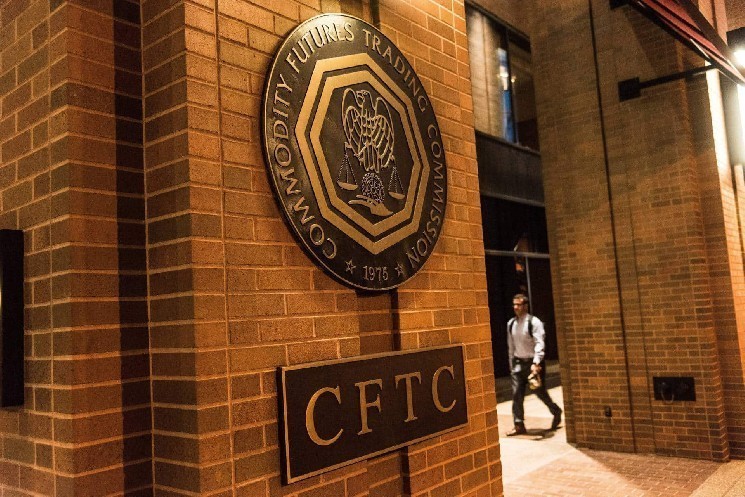White House Withdraws Brian Quintenz’s CFTC Chair Nomination Amid Federal Government Shutdown
Government Funding Crisis Overshadows Regulatory Leadership Changes
In a significant development that has rippled through both Washington’s regulatory circles and the cryptocurrency industry, the White House has officially withdrawn Brian Quintenz’s nomination to chair the Commodity Futures Trading Commission (CFTC). This decision, reported Tuesday evening by Politico, comes against the backdrop of the ongoing federal government shutdown as legislators failed to reach a budget agreement before the close of the 2025 fiscal year. The withdrawal marks a pivotal moment in the administration’s approach to financial regulation, particularly as it relates to emerging digital asset markets that have increasingly fallen under the CFTC’s oversight purview.
Quintenz, who previously served as a CFTC commissioner and most recently headed cryptocurrency policy at venture capital firm Andreessen Horowitz (a16z), had received substantial backing from significant portions of the cryptocurrency industry. His nomination had represented a potential shift toward more crypto-friendly regulatory leadership at one of the nation’s most important financial watchdogs. “It was the honor of my life to be nominated to chair the CFTC and go through the confirmation process,” Quintenz said in a statement, confirming Politico’s report. “I am grateful to the Chairman for this opportunity and to the Senate Agriculture Committee for considering it. I look forward to returning to my private sector work during this exciting time of innovation in our country.”
Cryptocurrency Industry Implications and Opposition Forces
The withdrawal comes after months of procedural delays in Congress that had stalled Quintenz’s confirmation process. While his nomination initially appeared to signal the administration’s potential openness to balanced cryptocurrency regulation, it had not progressed smoothly through the Senate’s vetting procedures. Industry observers had viewed Quintenz as potentially favorable to innovation in digital asset markets based on his previous regulatory stance and his recent work with Andreessen Horowitz, a major investor in blockchain technologies. However, not all cryptocurrency stakeholders supported his nomination. Notably, Tyler and Cameron Winklevoss, founders of the Gemini cryptocurrency exchange, publicly opposed Quintenz’s candidacy, raising concerns about potential conflicts of interest stemming from his past regulatory decisions that may have involved matters related to their business interests.
The cryptocurrency industry has been closely monitoring leadership changes at the CFTC, as the commission shares regulatory oversight of digital assets with the Securities and Exchange Commission (SEC). The CFTC’s approach to cryptocurrency regulation has significant implications for market development, innovation, and compliance requirements. The agency has jurisdiction over cryptocurrency derivatives and has been increasingly involved in enforcement actions against fraudulent schemes in the space. Quintenz’s withdrawal therefore represents more than just a personnel change—it signals potential shifts in the regulatory landscape that could affect market participants across the digital asset ecosystem, from exchanges and traders to developers and investors seeking regulatory clarity.
Alternative Candidates and Future Direction of CFTC Leadership
As Quintenz returns to his private sector role, attention now turns to who might next be tapped to lead the crucial regulatory body. According to Fox Business reporter Eleanor Terrett, who cited sources familiar with the deliberations, the White House is already considering alternative candidates for the CFTC chairmanship. Among those reportedly under consideration are former CFTC chair Jill Sommers, who served as a commissioner from 2007 to 2013 spanning both the Bush and Obama administrations, and Kyle Hauptman, who currently serves as President of the National Credit Union Administration (NCUA). Terrett noted that both potential nominees are thought to maintain supportive positions toward cryptocurrency innovation and markets.
The CFTC’s leadership direction holds particular importance as the United States continues to develop its approach to regulating digital assets. Under different chairs, the commission has varied in its enforcement intensity and regulatory philosophy. A new chair could significantly influence the commission’s priorities, enforcement actions, and rulemaking agenda regarding cryptocurrency markets. Industry stakeholders are watching closely to see whether the next nominee will continue the balanced approach that many had hoped Quintenz would bring, or if the administration might pivot toward stricter oversight of digital asset markets. The timing of a new nomination remains uncertain, particularly given the complications introduced by the current government shutdown.
Broader Context: Government Shutdown and Regulatory Uncertainty
The withdrawal of Quintenz’s nomination unfolds against the complicated backdrop of the federal government shutdown, which has dominated Washington’s attention in recent days. The failure to pass a funding bill for the new fiscal year has far-reaching implications across government operations, including at financial regulatory agencies. While the CFTC and other financial regulators typically maintain core functions during shutdowns through alternative funding mechanisms, the broader political environment becomes less conducive to advancing nominations and implementing new regulatory initiatives during these periods of fiscal uncertainty.
The intersection of the government funding crisis with changes in regulatory leadership creates a particularly challenging environment for industries seeking clear guidance. For cryptocurrency markets, which have already faced regulatory uncertainty with different agencies claiming various aspects of oversight authority, this combination of factors may further delay the regulatory clarity that many market participants have been seeking. The government shutdown not only complicates the process of naming and confirming a new CFTC chair but also potentially slows ongoing regulatory work at the commission, including rule-making, enforcement actions, and market oversight activities that affect cryptocurrency traders, exchanges, and other stakeholders.
Industry Reaction and Looking Ahead
The cryptocurrency industry’s reaction to Quintenz’s withdrawn nomination has been mixed, reflecting the diverse perspectives within the sector. While many industry advocates had welcomed his nomination based on his previous regulatory approach and understanding of blockchain technologies, others—including prominent figures like the Winklevoss twins—had expressed reservations. As the White House considers alternative candidates, industry stakeholders are reassessing how the regulatory landscape might evolve and what implications this could have for compliance requirements, market structure, and innovation opportunities in the digital asset space.
Looking ahead, the selection of the next CFTC chair nominee will provide important signals about the administration’s regulatory priorities regarding financial markets broadly and cryptocurrency specifically. Whether the White House proceeds with nominating Sommers, Hauptman, or another candidate entirely will influence how the commission balances its dual mandate of fostering competitive markets while protecting against systemic risk and market manipulation. For cryptocurrency entrepreneurs, investors, and users, the eventual selection will help determine the regulatory environment in which digital asset markets will continue to develop in the United States. As this situation continues to unfold amid the challenges of the government shutdown, market participants will be watching closely for indications of the direction that cryptocurrency regulation might take under new CFTC leadership.
This article does not constitute investment advice. Readers should conduct their own research before making financial decisions related to any topics discussed herein.














